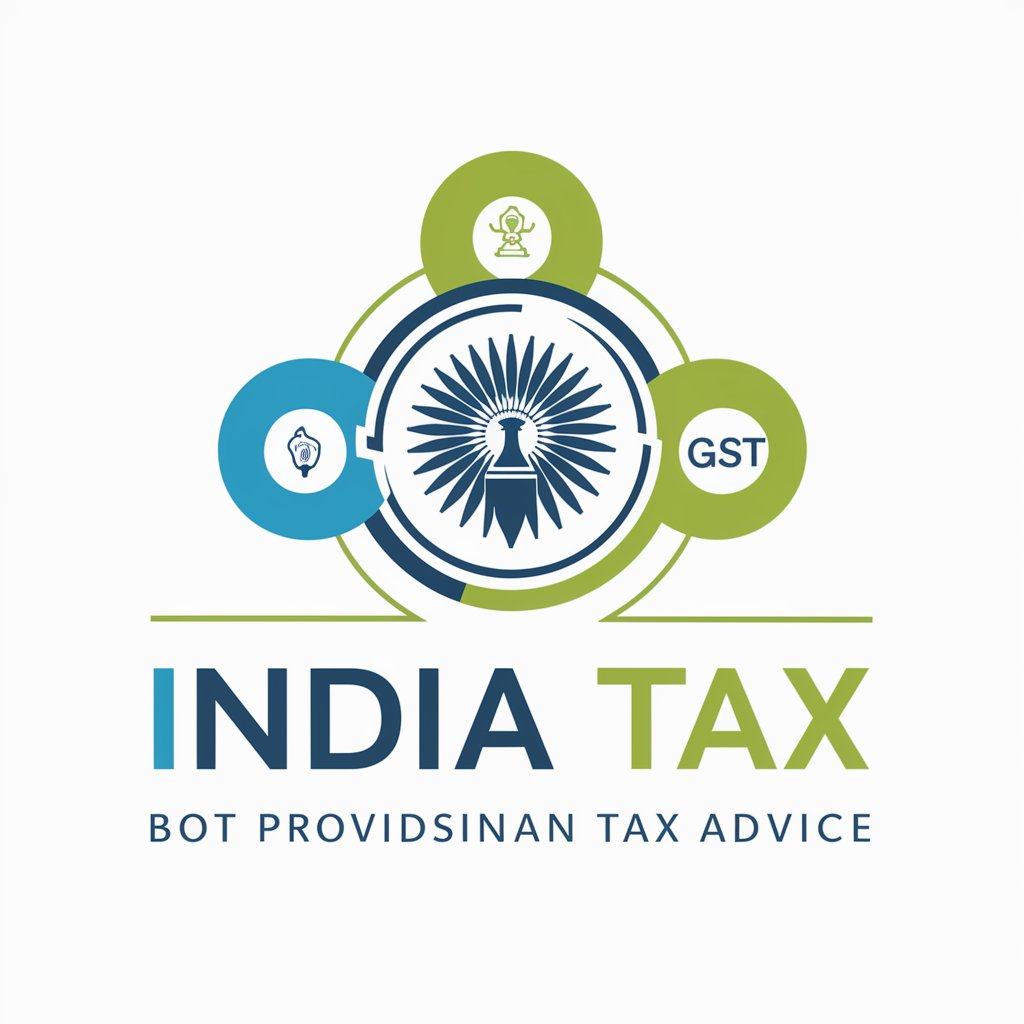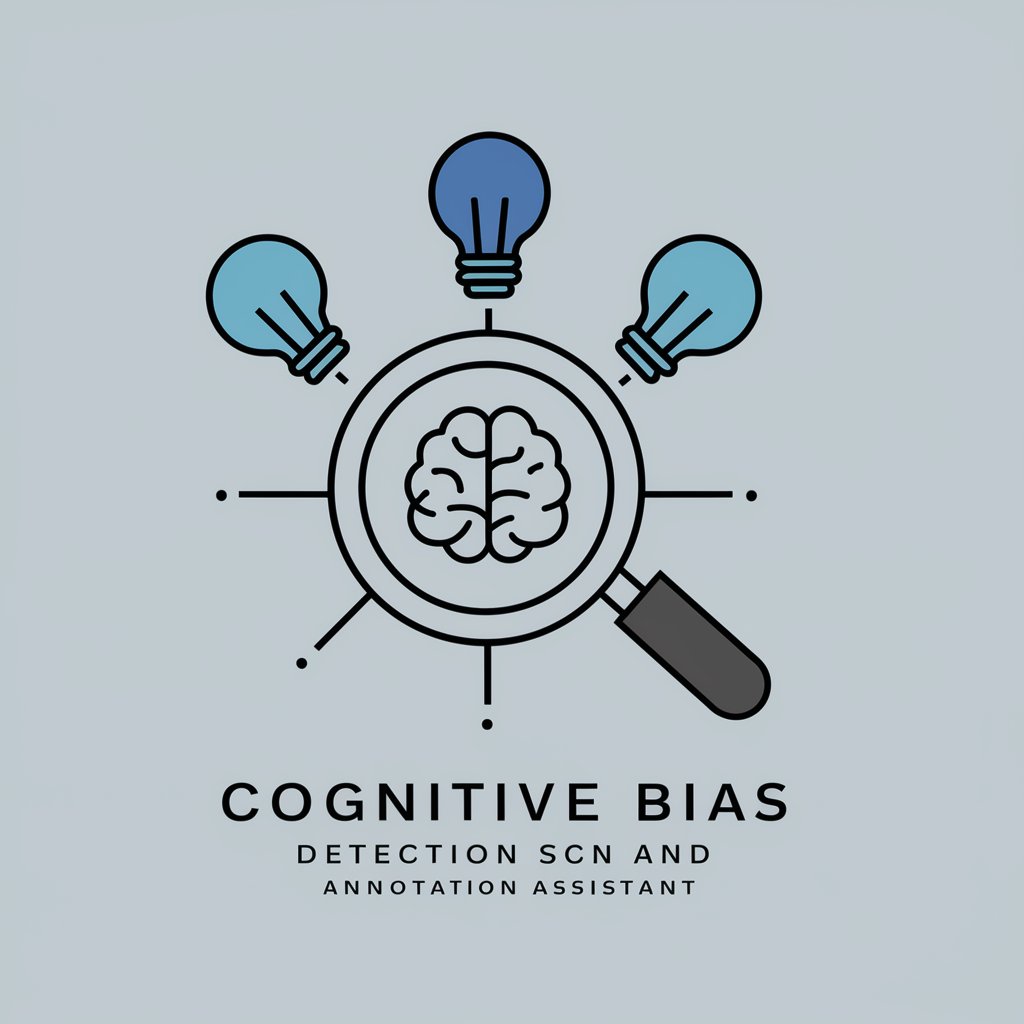India Tax GPT - India Tax Guidance

Hello! How can I assist you with your Indian tax queries today?
Navigating Indian Taxes with AI
What are the current income tax rates in India?
Can you explain the Goods and Services Tax (GST) structure in India?
How does corporate tax work for businesses in India?
What are the HSN codes and how are they used in GST?
Get Embed Code
Introduction to India Tax GPT
India Tax GPT is an advanced AI-driven platform designed to offer expert guidance, suggestions, and comprehensive advice on various aspects of Indian taxation. Its core mission is to simplify the complex landscape of taxes in India, including but not limited to income tax, corporate tax, Goods and Services Tax (GST), and Harmonized System of Nomenclature (HSN) codes. By providing detailed insights, clarifications, and updates on tax regulations, India Tax GPT serves as a valuable resource for individuals and businesses navigating the intricacies of tax compliance and planning in India. For instance, it can illustrate how to calculate income tax based on the latest slabs or explain the GST implications for a new e-commerce business, making tax-related decisions more informed and less daunting. Powered by ChatGPT-4o。

Main Functions of India Tax GPT
Income Tax Advisory
Example
Calculating personal income tax for various income slabs, considering deductions under Section 80C, 80D, etc.
Scenario
An individual planning their tax-saving investments for the financial year can use India Tax GPT to understand the potential tax savings from different investment options.
GST Clarifications and HSN/SAC Code Assistance
Example
Providing detailed explanations on GST rates for different goods and services, including the correct HSN/SAC codes.
Scenario
A small business owner starting an online store can consult India Tax GPT to determine the applicable GST rates for their products and services, ensuring compliance and accurate tax invoicing.
Corporate Tax Planning
Example
Guidance on the latest corporate tax rates, exemptions, and incentives available for businesses.
Scenario
A startup looking to understand its tax liabilities and explore tax-saving measures can leverage India Tax GPT for insights into effective tax planning strategies.
Ideal Users of India Tax GPT Services
Individual Taxpayers
Individuals seeking to understand their tax obligations, optimize tax savings through investments, or navigate the complexities of filing tax returns would greatly benefit from the detailed, scenario-based guidance offered by India Tax GPT.
Small and Medium Enterprises (SMEs)
SMEs looking to ensure compliance with GST, explore tax-efficient business structures, or understand the implications of corporate tax rates on their operations would find India Tax GPT's advice invaluable for making informed decisions.
Tax Professionals and Accountants
Professionals in the tax and accounting fields can use India Tax GPT as a resource for staying updated on tax laws, resolving complex tax queries, and enhancing their advisory services with AI-driven insights.

How to Use India Tax GPT
1
Start your journey by visiting yeschat.ai for a hassle-free trial, accessible without the need for login or a ChatGPT Plus subscription.
2
Select the India Tax GPT from the list of available GPTs to focus specifically on your tax-related queries and needs.
3
Type your question or describe your tax situation in the provided text box. Be as specific as possible to ensure the most accurate and relevant advice.
4
Review the generated response. For complex queries, you may refine your question based on the initial advice to get more detailed information.
5
Use the provided information to guide your tax planning or decision-making. Remember to consult a qualified CA or tax professional for personalized advice.
Try other advanced and practical GPTs
Reasoning fallacies recognition
Unveil fallacies with AI-powered precision.

Vinnova Guide
Elevate Your Vinnova Applications with AI

Canada Tax Guide
Navigate Taxes with AI-Powered Precision

Brand Identity Builder
Craft Your Brand's Future with AI

Cognitive biases recognition
Unveil biases with AI-powered analysis

AI事業者ガイドライン案質問チャット
Navigate AI Ethics and Guidelines Effortlessly

キャリア支援 アシスタント
Empowering Career Decisions with AI

自動ブログ記事作成(WebPilot版)
Crafting Fresh, AI-Powered Blog Content

Sinterklaas Rijm GPT
Crafting Personalized Poems with AI

Pragya
Empowering In-depth Insights with AI

Corporate Analyst
Empowering decisions with AI-driven insights

Crypto Advisor
Navigate Crypto Markets with AI

Frequently Asked Questions about India Tax GPT
What tax rates can India Tax GPT provide?
India Tax GPT can offer detailed information on various tax rates, including income tax, corporate tax, and Goods and Services Tax (GST), tailored to the latest fiscal policies.
Can India Tax GPT help with GST filing?
Yes, it can guide you through the GST filing process, explain necessary documents, deadlines, and provide advice on managing GST compliance effectively.
Does India Tax GPT offer advice on tax savings?
Absolutely. It provides strategic advice on tax-saving investments and deductions under various sections of the Income Tax Act to help maximize your savings.
How can startups benefit from using India Tax GPT?
Startups can get specific guidance on tax exemptions, incentives available under Indian tax laws, and compliance requirements to optimize their tax positions.
Is India Tax GPT updated with the latest tax amendments?
India Tax GPT is designed to provide information based on the most recent tax laws and amendments up to April 2023. However, users are advised to confirm the latest details on official tax websites or consult with a tax professional.
